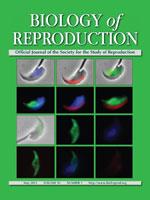The periconceptual environment represents a critical window for programming fetal growth trajectories and susceptibility to disease; however, the underlying mechanism responsible for programming remains elusive. This study demonstrates a causal link between reduction of precompaction embryonic mitochondrial function and perturbed offspring growth trajectories and subsequent metabolic dysfunction. Incubation of embryos with carbonyl cyanide 4-(trifluoromethoxy) phenylhydrazone (FCCP), which uncouples mitochondrial oxidative phosphorylation, significantly reduced mitochondrial membrane potential and ATP production in 8-cell embryos and the number of inner cell mass cells within blastocysts; however, blastocyst development was unchanged. This perturbed embryonic mitochondrial function was concomitant with reduced birth weight in female offspring following embryo transfer, which persisted until weaning. FCCP-treated females also exhibited increased adiposity at 4 wk, increased adiposity gain between 4 and 14 wk, glucose intolerance at 8 wk, and insulin resistance at 14 wk. Although FCCP-treated males also exhibited reduced glucose tolerance, but their insulin sensitivity and adiposity gain between 4 and 14 wk was unchanged. To our knowledge, this is one of the first studies to demonstrate that reducing mitochondrial function and, thus, decreasing ATP output in the precompacting embryo can influence offspring phenotype. This is of great significance as a large proportion of patients requiring assisted reproductive technologies are of advanced maternal age or have a high body mass index, both of which have been independently linked with perturbed early embryonic mitochondrial function.
How to translate text using browser tools
25 February 2015
Reduction of Mitochondrial Function by FCCP During Mouse Cleavage Stage Embryo Culture Reduces Birth Weight and Impairs the Metabolic Health of Offspring
Deirdre L. Zander-Fox,
Tod Fullston,
Nicole O. McPherson,
Lauren Sandeman,
Wan Xian Kang,
Suzanne B. Good,
Marni Spillane,
Michelle Lane
ACCESS THE FULL ARTICLE

Biology of Reproduction
Vol. 92 • No. 5
May 2015
Vol. 92 • No. 5
May 2015
blastocyst
developmental origins of health and disease
embryo
embryo culture
fetal development
mitochondria
pregnancy




